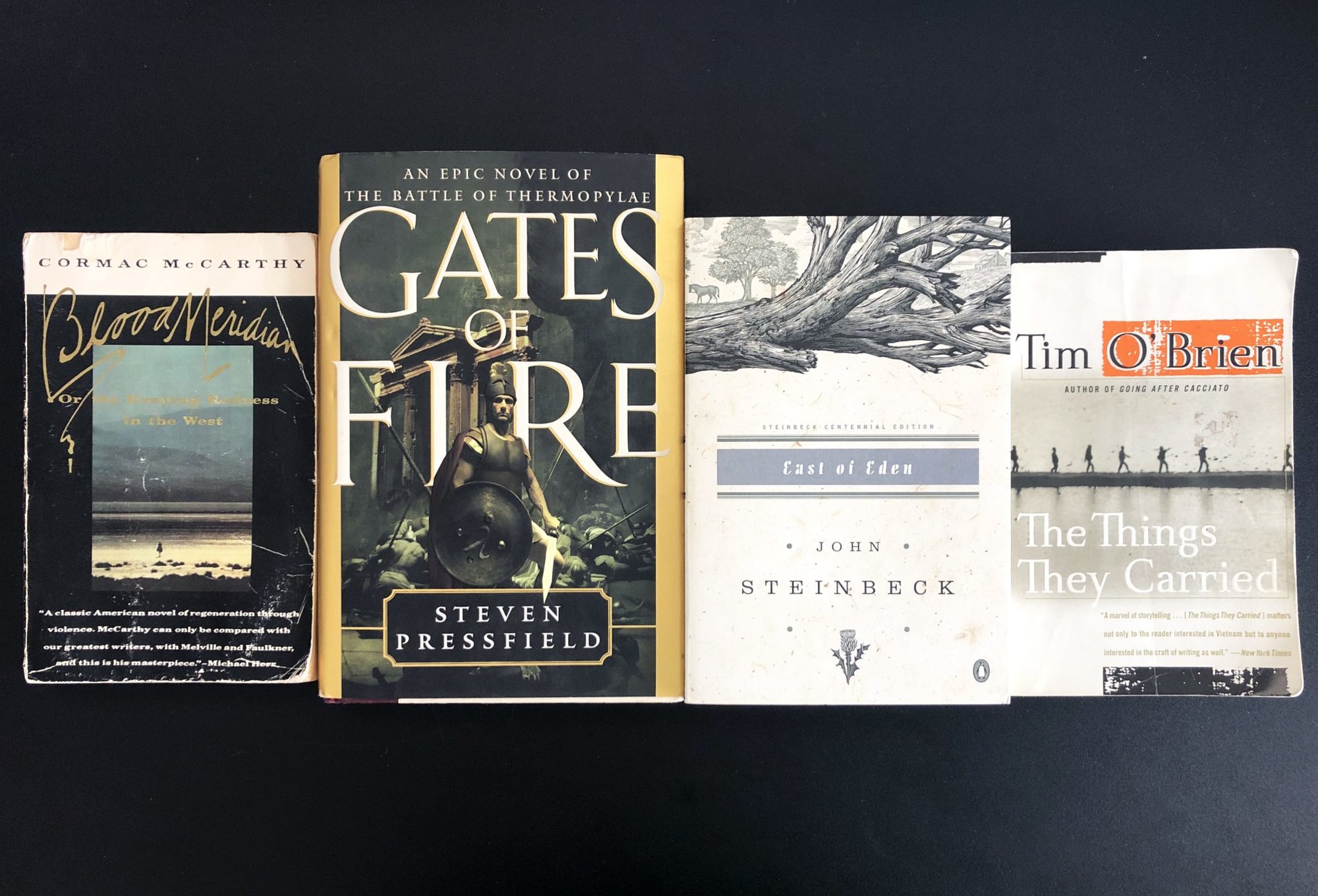
You can learn a lot about war from books.
While there are plenty of American veterans who might scoff at the idea that book learnin’ can effectively convey the experience of soldiering and combat, former US Secretary of Defense and decorated Marine Gen. Jim Mattis knows a little something about war, and this is his take on the subject:
“Reading is an honor and a gift from a warrior or historian who, a decade or a thousand decades ago, set aside time to write. He distilled a lifetime of campaigning in order to have a conversation with you. We have been fighting on this planet for 10,000 years. It would be idiotic and unethical to not take advantage of such accumulated experiences. … Any commander who claims he is too busy to read is going to fill body bags with his troops as he learns the hard way.”
I would take Mattis’ critique a step further and say that, in some instances, the novelist or fiction writer is even better equipped to capture something like a higher “Truth” about war. American fiction contains an endless repository of brilliant literary passages about soldiering and war, and we’re on a mission to share some of our favorites.
So here’s our inaugural list of some of the most profound passages about soldiering and combat in American fiction.
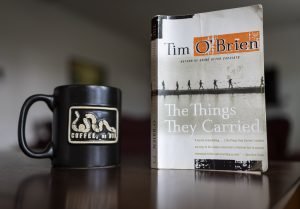
How To Tell a True War Story by Tim O’Brien
As I’ve written previously, How To Tell a True War Story is one of the greatest American short stories ever written, and this succinct passage is a masterful expression of war’s infinite complexity and contradiction in the human experience. It had to top this list.
“War is hell, but that’s not the half of it, because war is also mystery and terror and adventure and courage and discovery and holiness and pity and despair and longing and love. War is nasty; war is fun. War is thrilling; war is drudgery. War makes you a man; war makes you dead.”
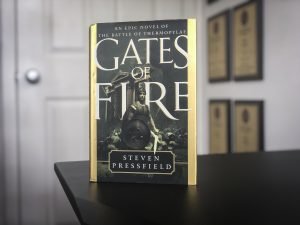
Gates of Fire by Steven Pressfield
Steven Pressfield’s novel about the battle of Thermopylae in 480 BC is a classic piece of historical fiction that contains a seemingly endless trove of truisms that speak especially to the warrior class. The novel is on the Marine Corps Commandant’s Professional Reading List and is taught at the US Military Academy at West Point and the US Naval Academy. Here are just a few of the book’s countless standout passages:
“When a warrior fights not for himself, but for his brothers, when his most passionately sought goal is neither glory nor his own life’s preservation, but to spend his substance for them, his comrades, not to abandon them, not to prove unworthy of them, then his heart truly has achieved contempt for death, and with that he transcends himself and his actions touch the sublime.”
“Here is what you do, friends. Forget country. Forget king. Forget wife and children and freedom. Forget every concept, however noble, that you imagine you fight for here today. Act for this alone: for the man who stands at your shoulder. He is everything, and everything is contained within him. That is all I know.”
“The secret shame of the warrior, the knowledge within his own heart that he could have done better, done more, done it more swiftly or with less self-preserving hesitation; this censure, always most pitiless when directed against oneself, gnawed unspoken and unrelieved at the men’s guts. No decoration or prize of valor, not victory itself, could quell it entire.”
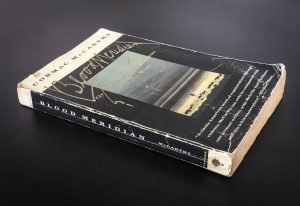
Blood Meridian (or The Evening Redness in the West) by Cormac McCarthy
Cormac McCarthy is one of America’s greatest novelists. Known for his dense, lyrical prose; dark, heady themes; and disdain for commas, McCarthy is a literary powerhouse, and Blood Meridian is one of his most revered novels. The book’s primary antagonist, Judge Holden, is easily one of the creepiest, most evil villains ever conceived. Archetypically speaking, “The Judge” is literally Satan. He is a complete sociopath, but also a literal genius whose affinity for killing and war is matched by his enthusiasm for waxing philosophical. In one scene from the novel, he sits around a campfire with his band of Old West mercenaries and preaches his own gospel of war in an old-school dialectic whose efficacy is slightly unnerving.
“It makes no difference what men think of war. War endures. As well ask men what they think of stone. War was always here. Before man was, war waited for him. The ultimate trade awaiting its ultimate practitioner. That is the way it was and will be. That way and not some other way … [War] endures because young men love it and old men love it in them. Those that fought, those that did not … War is the truest form of divination. It is the testing of one’s will and the will of another within that larger will which because it binds them is therefore forced to select. War is the ultimate game because war is at last a forcing of the unity of existence. War is god.”
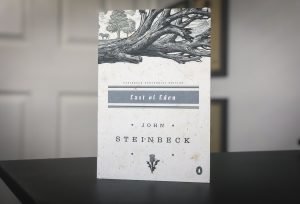
East of Eden by John Steinbeck
East of Eden is — in my not-so-humble opinion — one of the greatest novels ever written. Steinbeck considered it his greatest work, and it’s hands-down my favorite book. It’s a truly transcendent work of fiction.
While it’s not necessarily a war novel, East of Eden does deal with the topics of military service, war, and its aftermath, and Steinbeck’s prose shines in those sections. In one early scene, Cyrus Trask tells his son Adam what to expect before he ships off to the Army:
“I’ll have you know that a soldier is the most holy of all humans because he is the most tested — most tested of all. I’ll try to tell you. Look now — in all of history men have been taught that killing of men is an evil thing not to be countenanced. Any man who kills must be destroyed because this is a great sin, maybe the worst sin we know. And then we take a soldier and put murder in his hands, and we say to him, ‘Use it well, use it wisely.’ We put no checks on him. Go out and kill as many of a certain kind or classification of your brothers as you can. And we will reward you for it because it is a violation of your early training.”
Steinbeck has a great deal more to say about soldiering, and all of it is incredibly poignant and “True,” but if you want more literary awesomeness, you’ll have to go read (or reread) the novel. Same goes for the others. They are all worth the time.

Ethan E. Rocke is a contributor and former senior editor for Coffee or Die Magazine, a New York Times bestselling author, and award-winning photographer and filmmaker. He is a veteran of the US Army and Marine Corps. His work has been published in Maxim Magazine, American Legion Magazine, and many others. He is co-author of The Last Punisher: A SEAL Team THREE Sniper’s True Account of the Battle of Ramadi.
BRCC and Bad Moon Print Press team up for an exclusive, limited-edition T-shirt design!
BRCC partners with Team Room Design for an exclusive T-shirt release!
Thirty Seconds Out has partnered with BRCC for an exclusive shirt design invoking the God of Winter.
Lucas O'Hara of Grizzly Forge has teamed up with BRCC for a badass, exclusive Shirt Club T-shirt design featuring his most popular knife and tiomahawk.
Coffee or Die sits down with one of the graphic designers behind Black Rifle Coffee's signature look and vibe.
Biden will award the Medal of Honor to a Vietnam War Army helicopter pilot who risked his life to save a reconnaissance team from almost certain death.
Ever wonder how much Jack Mandaville would f*ck sh*t up if he went back in time? The American Revolution didn't even see him coming.
A nearly 200-year-old West Point time capsule that at first appeared to yield little more than dust contains hidden treasure, the US Military Academy said.












